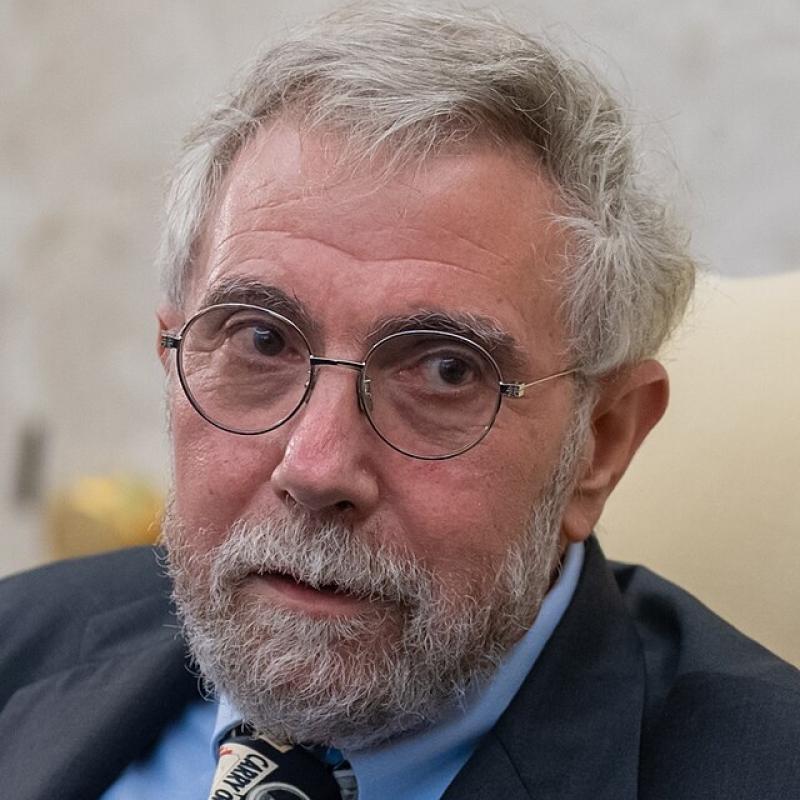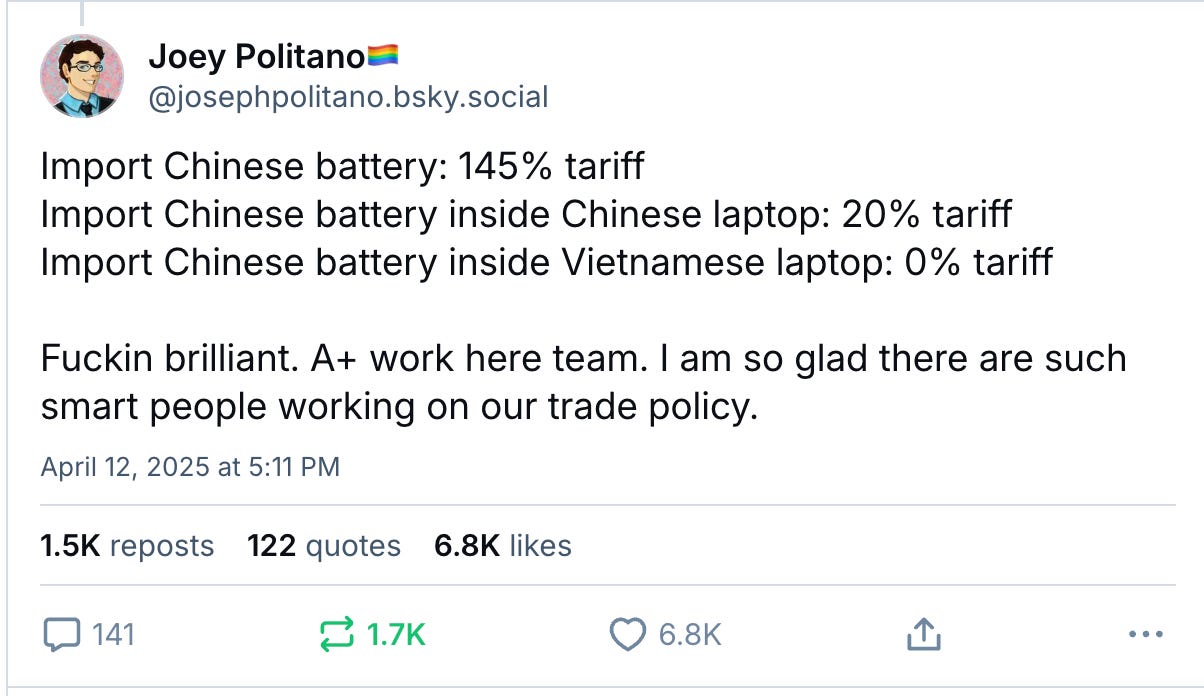The Trump Tariffs Just Got Even Worse



So no, I'm not up in the middle of the night obsessing about tariffs. It's mid-morning here. Still, I didn't plan a tariff post today; Part I of my financial crisis primer will be going up in a few hours.
But I wanted to put up a quick response to yesterday's sudden move to exempt electronics. What you need to know is that it does not represent a move toward sanity. On the contrary, the Trump tariffs just got even worse.
Why? Three reasons.
-
For electronics, at least, we're now putting much higher tariffs on intermediate goods used in manufacturing than on final goods. This actually discourages manufacturing in the United States. Joey Politano puts it well:

-
Uncertainty created by ever-changing tariff plans is arguably a bigger problem than the tariffs themselves. So look at the timeline so far. First we had the sudden imposition of average tariffs bigger than Smoot-Hawley. Then, a week later, Trump ditched that plan and replaced it with a plan that imposed average tariffs roughly the same size, but with the tariffs on individual countries either much higher or much lower than in the first plan. Then tariffs were taken off some but not all products just three days later. At this rate we'll soon see tariffs changing every day, then maybe every three hours.
-
The stench of corruption around these policies keeps getting stronger. There's a lot of circumstantial evidence for massive insider trading around last week's tariff announcement; the big beneficiaries from the latest move are companies that made big donations to Trump. Investing in plant and equipment looks like a bad idea given the uncertainty, but investing in bribes for the ruling family clearly yields excellent returns.
So just like that we're turning into a nation where policies are ill-considered and constantly changing, and business success depends not on what you know but on who you know and whether you pay them off.
Trump is making something great again, but it ain't America.
Whatever







Even Krugman has a hard time accepting the obvious: America is now a kleptocracy. The vultures are upon us.
I read a statement by Navarro on this and at the end I had no idea WTF he was talking about. I’m sure he didn’t either, he was become the new Dr Erwin Corey.
This seems to be 19 month old news. This was making the rounds when "He Who Can't be Blamed" slept in the White House.
I thought a kleptocracy was supposed to enrich those in charge. No one has authored a book yet. No one is attracting speaking engagements yet. Everyone in charge is taking a beating on the stock market along with everyone else. Who in the administration has gotten richer?
Meanwhile, the vast majority of Americans seeing that the priice of gas and groceries hasn't changed much, ignore the rants of fake economists and go about their daily business
... forgetting that "someone" promised to lower prices on day one...
One question that never seems to get answered is if tariffs are so darn bad, why do so many countries have tariffs on imported American goods?
Simple, tariffs are not bad in and of themselves. However, like so many other things, when misused they can become bad.
So in what way are tariffs put on American goods going to other countries good for the US?
[✘]
Google is your friend....
Can tariffs be a good thing?
The normal good (and proper) use of tariffs is to aid domestic suppliers. Another use is to dissuade consumers from buying products that are undesirable for some reason.
For example, US vehicles tend to be large and have relatively low mileage compared to most European cars. It is certainly reasonable for a nation to impose a tariff on these vehicles to encourage consumers to buy smaller, more efficient cars designed for the European environment (e.g. smaller spaces, roads, etc.).
India has tariffs on agriculture to protect their many local farms. They have tariffs on dairy products because they have strong rules on same (religious in part). There was nothing punitive about this.
Tariffs are not bad or good. They are a strategic tool that can be used for net good or net bad. Trump has demonstrated in the extreme how to abuse the concept of tariffs for net bad.